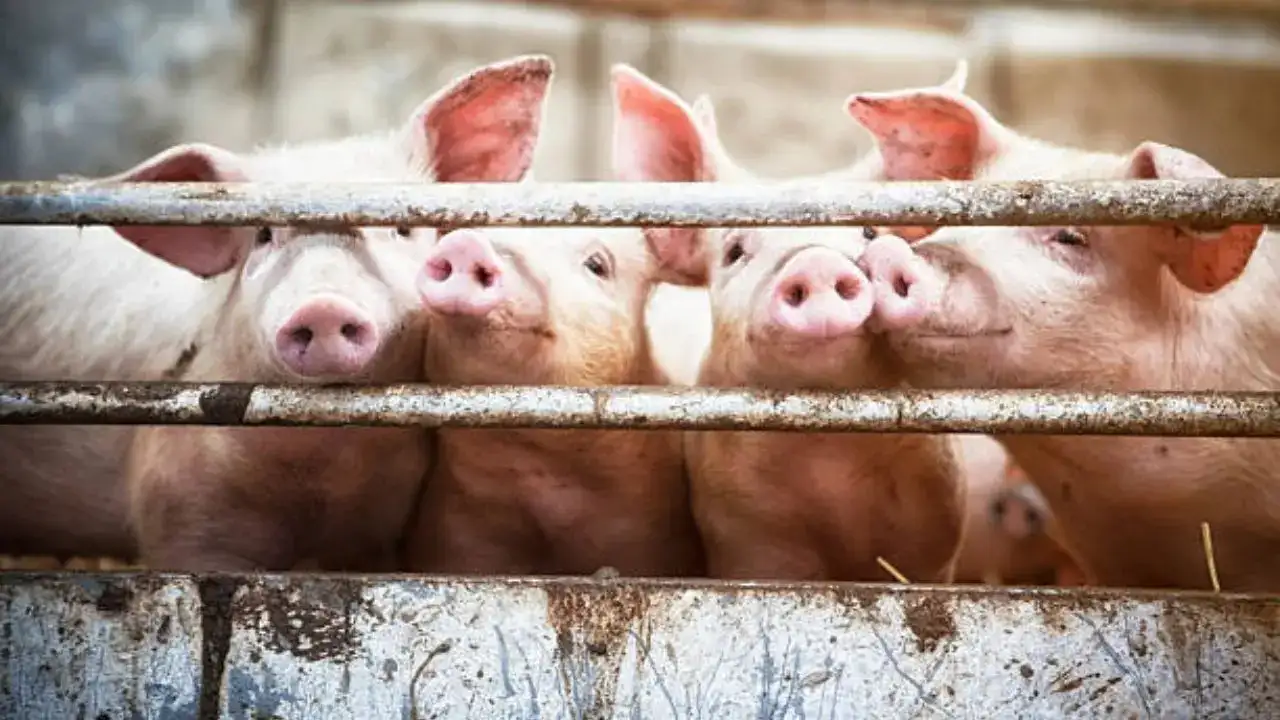
Implications for both zoonotic and reverse zoonotic disease risks are highly concerning
The first-ever known UK instance of 'reverse zoonosis'—where' human flu has been detected in a pig from a factory farm. This revelation, The Mirror says, was tucked away in government surveillance data from a Northern Irish pig farm.
Zoonotic diseases, also known as zoonoses, are infectious diseases that can be transmitted from animals to humans, caused by various pathogens like bacteria, viruses, fungi, or parasites. Examples of the ones that spread across continents include rabies, anthrax, and Lyme disease. The report says implications for both zoonotic and reverse zoonotic disease risks are highly concerning, as the farm where it was discovered has also reported cases of highly infectious and contagious swine flu.
There have also been similar instances of human-to-pig infection recorded in the US—however, this farm case is the first ever reported in the UK.
According to experts, farm animals who live in captivity have impaired immune systems, which amplifies the rate of virus shedding, thereby increasing the risk of zoonotic diseases. "We've seen bird flu in humans, and now buried in a government report we've found evidence of human flu in pigs for the first time,” Green Britain Foundation founder Dale Vince told The Mirror.
“How long will we wait before these preventable diseases trigger another pandemic? We need to overhaul our relationship with animals and radically rethink our food systems," he added.
Scientists call for a ban on fur farming
Also, many scientists have raised their voices against the fur export, calling for a complete ban “to prevent future outbreaks and paand for the sake of public health". Experts have time and again warned that fur farming heightens the risk of zoonotic disease emergence.
According to studies, animals bred for fur in China highlighted 39 viruses classified as "potentially high-risk" for human contagion. The Daily Express reported at least 422 COVID-19 outbreaks across 289 mink farms in Europe and North America in 2020-21—around the time the entire world was reeling under the pandemic. Despite closing its last fur farm in 2003, the UK has imported over €900m worth of pelts since then.
How can you get zoonotic diseases?
According to experts, zoonotic illness can spread through:
- Contact with the body fluids like blood, pee, poop, and saliva of infected animals
- Bites and sometimes scratches from infected animals
- Bites from insects, like ticks, mosquitos, or fleas
-
Eating undercooked meat
- Drinking contaminated water
Ways to prevent zoonotic diseases
Doctors say you can reduce your risk of infection with a zoonotic by:
Vaccinations
For those who are high at risk for zoonotic illnesses like pox, rabies, or Ebola, you can get vaccinated to help protect yourself from infection.
Protection from bug bites
Make sure to wear long sleeves and long pants, use bug spray with DEET, and check yourself and your pets for ticks after being outside.
Wear gloves when handling animals
Those who work on farms should make sure never to pick up a wild animal with their bare hands.
Follow safe food practices
Always eat cooked meat and wash your hands and utensils before and after preparing food. Never drink untreated water. Do not eat bush meat.
Try to avoid animal bites and scratches
Contact your doctor immediately if you have been bitten or scratched by an animal.
Get Latest News Live on Times Now along with Breaking News and Top Headlines from Health and around the world.
